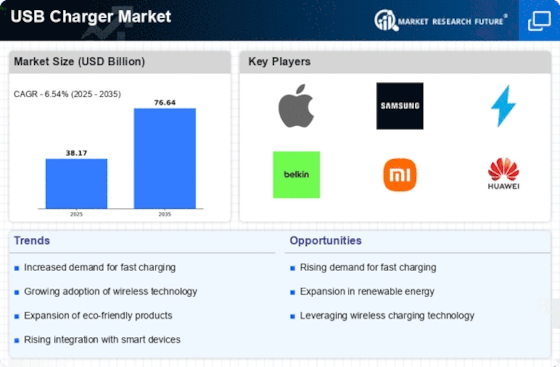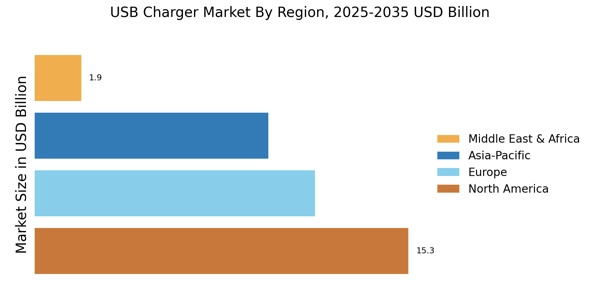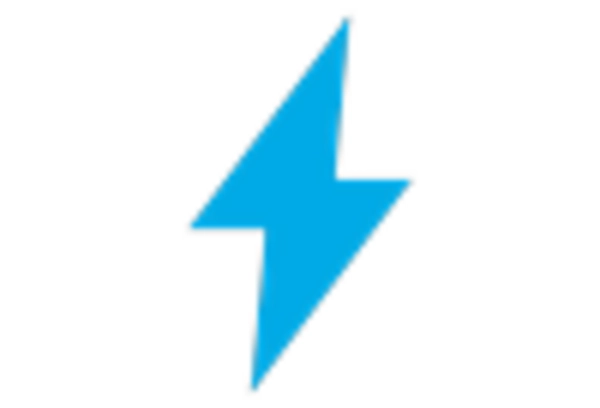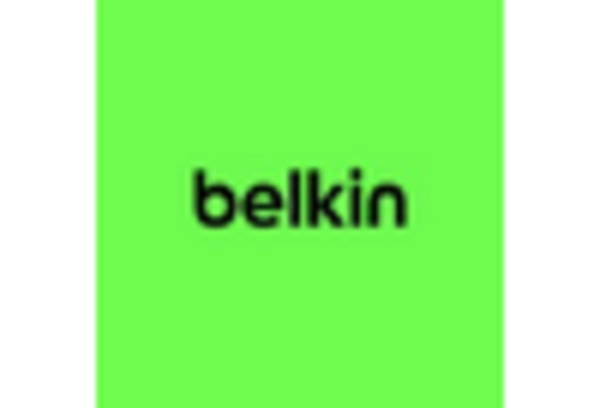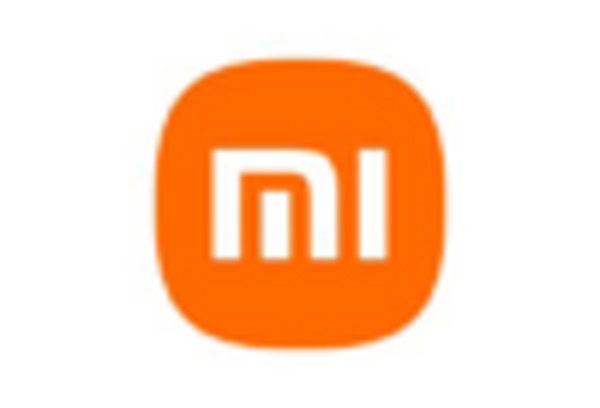Increased Focus on Sustainability
The growing emphasis on sustainability is influencing the USB Charger Market significantly. Consumers are becoming more environmentally conscious, prompting manufacturers to adopt eco-friendly practices in their production processes. In 2025, it is anticipated that a considerable segment of the USB Charger Market will be dedicated to sustainable products, including chargers made from recycled materials and those designed for energy efficiency. This shift not only aligns with consumer values but also addresses regulatory pressures aimed at reducing electronic waste. Companies that prioritize sustainability in their product offerings are likely to gain a competitive edge in the USB Charger Market. As awareness of environmental issues continues to rise, the demand for sustainable charging solutions is expected to grow, driving innovation and market expansion.
Rising Demand for Portable Devices
The increasing prevalence of portable electronic devices such as smartphones, tablets, and laptops is a primary driver of the USB Charger Market. As consumers rely more on these devices for daily tasks, the need for efficient charging solutions has surged. In 2025, it is estimated that the number of smartphone users will reach approximately 6.5 billion, further amplifying the demand for USB chargers. This trend indicates a robust growth trajectory for the USB Charger Market, as manufacturers strive to meet the charging needs of a tech-savvy population. Additionally, the rise of remote work and online education has led to a greater reliance on portable devices, thereby increasing the necessity for reliable charging options. Consequently, the USB Charger Market is poised to expand significantly in response to this growing consumer demand.
Technological Advancements in Charging Solutions
Technological innovations in charging solutions are propelling the USB Charger Market forward. The advent of fast charging technologies, such as Power Delivery and Quick Charge, has transformed consumer expectations regarding charging speed and efficiency. In 2025, the market for fast chargers is projected to account for a substantial portion of the overall USB Charger Market, reflecting a shift towards high-performance charging solutions. Furthermore, advancements in materials and design, including the use of GaN (Gallium Nitride) technology, enable smaller and more efficient chargers. These innovations not only enhance user experience but also contribute to the overall growth of the USB Charger Market. As consumers increasingly seek out chargers that offer both speed and portability, manufacturers are likely to invest in research and development to stay competitive in this dynamic landscape.
Integration of Smart Technology in Charging Devices
The integration of smart technology into charging devices is reshaping the USB Charger Market. Smart chargers equipped with features such as adaptive charging, which optimizes power delivery based on device requirements, are gaining traction among consumers. In 2025, it is projected that smart chargers will represent a significant share of the USB Charger Market, driven by the increasing demand for user-friendly and efficient charging solutions. Additionally, the incorporation of connectivity features, such as Bluetooth and app integration, allows users to monitor charging status and energy consumption. This trend indicates a shift towards more intelligent and interactive charging solutions, appealing to tech-savvy consumers. As manufacturers continue to innovate and enhance the functionality of USB chargers, the USB Charger Market is likely to experience sustained growth and diversification.
Expansion of Electric Vehicle Charging Infrastructure
The expansion of electric vehicle (EV) charging infrastructure is emerging as a significant driver for the USB Charger Market. As the adoption of electric vehicles continues to rise, the need for compatible charging solutions is becoming increasingly critical. In 2025, the number of public charging stations is projected to increase substantially, creating opportunities for USB chargers that cater to EV users. This trend not only supports the growth of the USB Charger Market but also encourages the development of innovative charging technologies tailored for electric vehicles. Furthermore, partnerships between automotive manufacturers and charging solution providers are likely to enhance the availability of USB chargers in the EV market. As the transition to electric mobility accelerates, the USB Charger Market is expected to benefit from this burgeoning demand for efficient and accessible charging options.

